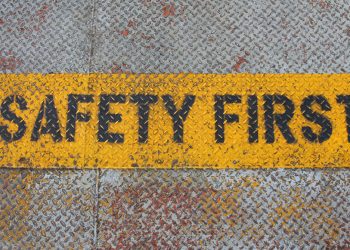An Officer of the Watch (OOW) is responsible for keeping watch on the bridge to ensure the safe navigation of the ship based on a pre-defined Passage plan as approved by Master. In this regard, the decision making process is vital during his/her watch as the final decisions reflect directly on the safety of the vessel.
The following regulations from COLREGs are applicable to this matter:
Rule 5 : Look-out
Every vessel shall at all times maintain a proper look-out by sight as well as by hearing as well as by all available means appropriate in the prevailing circumstances and conditions so as to make a full appraisal of the situation and of the risk of collision.
Rule 7: Risk of Collision
(a) Every vessel shall use all available means appropriate to the prevailing circumstances and conditions to determine if risk of collision exists. If there is any doubt such risk shall be deemed to exist.
Rule 8: Action to Avoid Collision
(a) Any action to avoid collision shall be taken in accordance with the Rules of this Part and shall, if the circumstances of the case admit, be positive, made in ample time and with due regard to the observance of good seamanship.
[smlsubform prepend=”GET THE SAFETY4SEA IN YOUR INBOX!” showname=false emailtxt=”” emailholder=”Enter your email address” showsubmit=true submittxt=”Submit” jsthanks=false thankyou=”Thank you for subscribing to our mailing list”]
Almost all Safety management Systems in the section of navigation provide guidance on the frequency of vessel fixing during voyage. Time varies according the area of navigation from one hour (Open Ocean) to 15 minutes during narrow passages and pilotage.
Having all the above in mind, using cell phones while on navigational watch can be very dangerous. It is true that the place onboard a vessel with almost 24/7 coverage of cell phone signal at sea is the bridge and in many cases Masters have a phone approved by the shipping organization to ensure communication between office and ship without any hurdles due to poor connection. However, office personnel or any other individual out board of the vessel is impossible to know the situation of navigational status at the time of each phone call. On the other hand, the OOW, as an employee, may feel that he/she has the obligation to reply and provide information to the other end of the line as part of his/hers duties.
Taking into consideration the Rules, the OOW talking to cell phone involves many risks and may mean the following:
- Rule 5 – No proper look out is stationed as the OOW is distracted from the phone conversation.
- Rule 7 – Not all available means are used to avoid the risk of collision as the main responsible for decision making is occupied by other tasks
- Rule 8 – When all the above are being combined the actions to avoid collision is not positive, made in ample time and surely does not designate good seamanship.
- SMS fixing frequency – Talking to phone probably also violates the established and approve fixing periods during the watch.
The most risky periods of using cell phone or other distractive means (not part of vessel’s equipment), on board during watch are:
- In pilotage waters or when entering or departing port.
- When navigating in the vicinity of ports or anchorages.
- In restricted visibility.
- In areas of high traffic density.
- In areas of restricted sea room.
- When only one navigating officer is on watch.
USCG issued a reminder to the advisory Advisory 01-10, regarding the use of cell phones on board highlighting that “the potential risk associated with improper use of cellular telephones and other devices in the marine environment while navigating or performing other vessel functions should be apparent to vessel owners and operators”. UK MCA has also issued the Marine Guidance MGN 299 following raised concerns about the issue and the subsequent interference with navigation. Best Practice indicates the prohibition of the use of cell phones on the bridge while the vessel is underway. If the office requires communication with the vessel, may use the satellite line of Master’s office or email communication. Needless to say that the use of personal cell phones should be strictly prohibited during watch on board (any kind of watch). Crew members may use their phones during rest period and definitely not when they have to complete an assigned task or duty.


































































I absolutely agree on the prevention of any negative circumstance which could be caused due to lack of attention of the OOW by useage of a mobile that this should be forbidden on the bridge or other moments where one needs to keep his mind at.
All ship owners/managers should prohibit the use of cell phones by anyone on the bridge of the ship in their SMS procedures. Any abuse should result in instant dismissal. My old employer made this a condition of employment regarding use of cell phones when driving and on the bridge 25 years ago! It should be standard practice and applicable to pilots aswell.